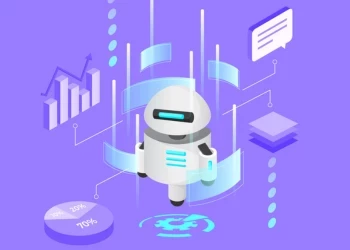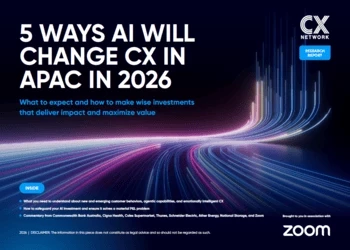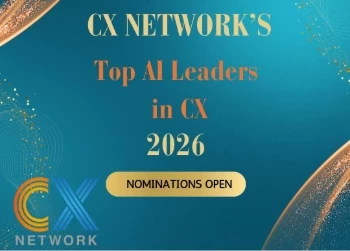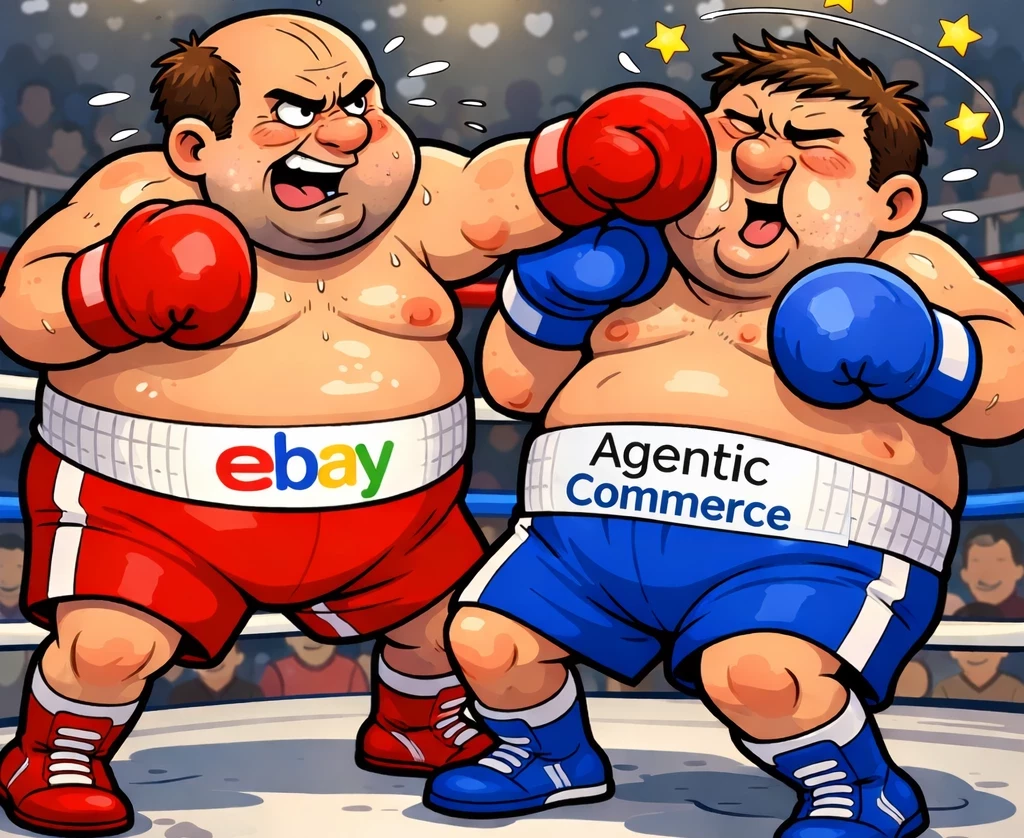10 trends changing CX in 2025 and how to embrace them
Discover the top 10 CX trends influencing the work of our network members in 2025, and how they are adapting CX strategy in response
Add bookmark
Whether it’s the latest technologies, customer demands or leadership techniques, trends shape business every day. But when it comes to CX, this critical business function often finds itself shaped by developments in IT, HR and corporate, as well as external factors – and practitioners must keep ahead of them all.
During our annual research for the Global State of CX, we asked practitioners to select the three CX trends having the most impact on their work from a list of more than 20 choices. Artificial intelligence (AI) and AI-related technologies comprised six of the top 10 responses and replaced data and analytics in the top spot.
Following the recent arrival of agentic AI and copilots, the top trend for CX in 2025 emerged as AI-powered technologies for operations, selected by 35 percent of respondents and up from second place in 2024. With a number of agentic AI products now on the market, the use of AI to support operations – which in turn improves CX – will only grow.
Tied in second place, generative AI chatbots and virtual assistants, and customer loyalty and retention both received 25 percent of the vote. Automation (23 percent) took the fourth spot and conversational AI chatbots and virtual assistants (21 percent) emerged as the fifth most selected response.
This article delves into these trends in detail to explain how and why AI, data and automation are changing CX and, crucially, what you can do to keep ahead. You can read more on the outlook for CX in 2026 and the role agentic and generative AI are likely to play, here:
- CX trends in 2026: What to expect and how to prepare
- CX trends in 2026: 10 ways generative and agentic AI will change the game

Don't miss any news, updates or insider tips from CX Network by getting them delivered to your inbox. Sign up to our newsletter and join our community of experts.
10 trends changing CX in 2025

Similar trends were seen in 2024 when, as demonstrated above, AI dominated the top trends, comprising five of the top 10 trends and enabling a further four for the first time since launching our annual research into the Global State of CX in 2016.
How practitioners are embracing the top CX trends
On how practitioners are preparing for these trends, the majority (64 percent) said they are facilitating team training and skills development. This was followed by investing in new tools (54 percent), collaborating with new/ different departments (46 percent), conducting market research and competitor analysis (39 percent) and recruiting for specific skillsets (27 percent).
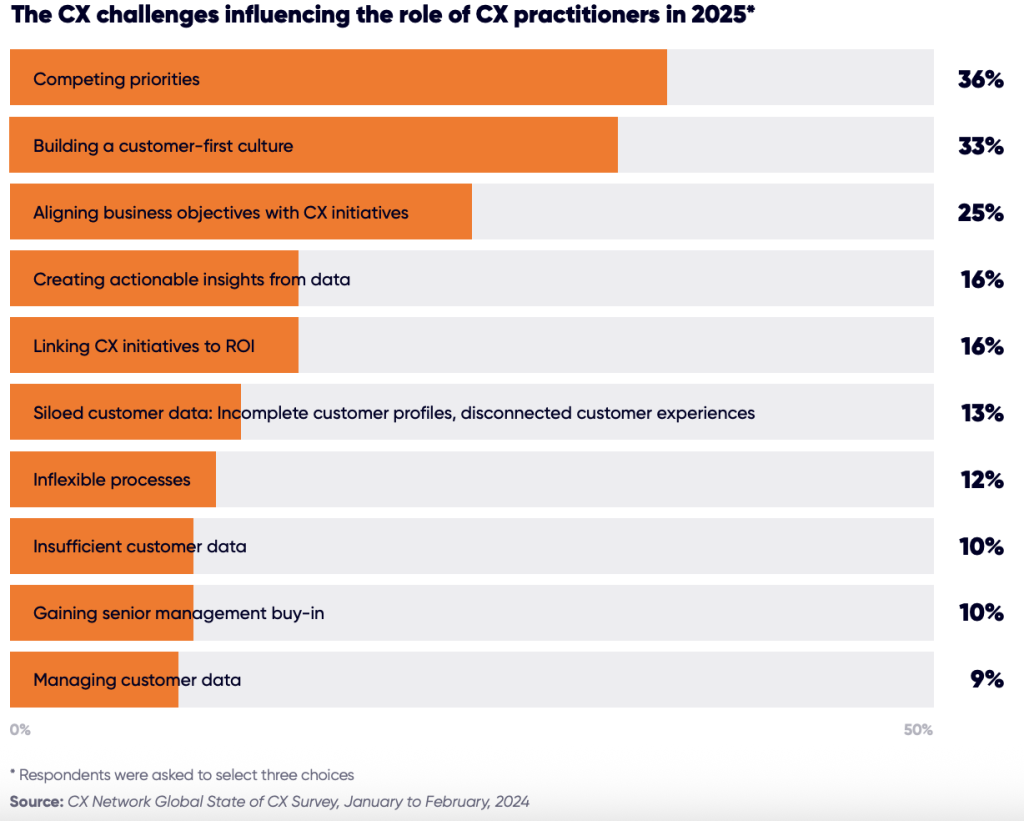
AI agents and CX in 2025
Senior CX executive and retail expert Dominik Olejko, who has worked for H&M, IKEA and Decathlon, says the prominence of AI in the top 10 most selected responses signals “a fundamental shift in how businesses enhance customer experience” as AI becomes “the backbone of scalable, efficient and hyper-personalized CX strategies.”
“In 2025 and beyond, AI-driven CX will shift from experimentation to execution at scale,” Olejko says and this will see AI agents evolve from basic automation tools into proactive, context-aware assistants that can anticipate issues and personalize interactions in real time to provide “seamless omnichannel support.”
This will enhance resolution speed and accuracy and free human agents to focus on tasks that demand “creativity, problem-solving and emotional intelligence,” Olejko says.
“AI can drive efficiency, but lasting loyalty is built on trust, empathy and meaningful engagement. In 2025 and beyond, the brands that win will be those that master the art of blending AI-driven intelligence with human intuition, delivering experiences that are not only efficient but also deeply personal, trust-driven and above all human,” he says.
Using AI for unstructured data
Debasmita Das, manager and data scientist for Mastercard says the prominence of AI in the top trends shows it is evolving to become “the core enabler of value creation”. However, its role in managing and utilizing unstructured data is also important.
“Organizations will start considering AI as the nucleus driving business operations, strategic objectives and decision-making. In fact, effective AI integration and adoption may be a key competitive differentiator,” she says.
“The ability of AI to manage and utilize unstructured data took a backseat until recently. AI holds immense potential, however, many organizations have yet to implement the necessary frameworks to structure and capitalize effectively. Businesses are also refocusing and adopting comprehensive data governance strategies around such unstructured data,” she continues.
Das says cross-functional collaboration between business teams and data science teams is already becoming imperative to ensure AI-generated decisions align with strategic company objectives. “This synergy not only ensures responsible AI adoption but also translates AI-driven productivity gains into tangible business value,” she says.
Is data analytics less important in 2025?
Although AI and data are inextricably linked, as a trend, data analytics dropped from first selected response for practitioners in 2025 to seventh in 2025. However, Das says that this result “does not indicate a decrease in its importance, rather a shift in perception.”
“Organizations have invested profusely in extensive data infrastructures over the last few years and today, data-driven decision-making is a standard practice. However, the focus has now shifted from just ‘data’ to how AI is extracting value from data,” she explains.
One example is the 2009 release of Apache Spark, which was designed to meet Netflix's rising data processing requirements. “Fast forward to today, Netflix creates and processes data on an exponentially larger scale. This is just one example that illustrates the fast growth in data volumes across industries. Thus, even though newer technologies are at the leading edge of innovation, the world is still completely reliant on ‘good data’. AI models cannot work effectively without high-quality data, highlighting the need of data management and governance,” Das says.
CX IRL: How Travel Counsellors is embracing the top trends
Embracing AI for CX may be imperative but it is not without its challenges, among them how to balance automation with a human touch.
As Olejko says, the successful brands will use AI not as a replacement but as an enabler, “equipping human agents with deeper insights and better tools to enhance customer interactions.” Furthermore, in 2025 the harmony between human and machine will demand transparency and strict governance to ensure ethical AI usage and preserve customer trust.
At Travel Counsellors, a B2B2C business that has built its success on delivering a personal touch, these points are driving CX strategy.
Claire Hill, customer operations director for Travel Counsellors and a CX Network Advisory Board member, says that as AI plays an ever-greater role in CX, the business is embracing the future by focusing on skills development, collaboration, responsible AI utilization and building stronger connections across departments.
She explains: “As we look ahead to 2025, customer experience (CX) is evolving faster than ever. Embracing new trends and staying ahead of the curve is not just an exciting challenge – it’s essential. Sharing learnings and expertise is a key part of our role as practitioners, enabling us to shape how CX should look in the years to come.”
According to Hill, AI sits “front and center in the current transformation” and, to navigate AI successfully, Travel Counsellors is focusing on skills development, adopting new tools and fostering collaboration.
“With great power comes great responsibility: ethical AI practices are a must. We’re proactively addressing risks by implementing robust preventative measures and keeping our data safe. To strengthen our efforts, we’re bringing in AI subject matter experts to complement the new skills we’re cultivating within our teams,” she discloses.
On how the organization is keeping the personal touch front and center of its experience, seamless collaboration between humans and machines is top of mind. “Our tools are designed to be transparent, fair and always customer-focused. We’re co-creating solutions with our customers, learning from their feedback and identifying tension points where human intervention adds value,” Hill explains.
“This ensures we’re not just deploying technology but doing so in a way that resonates with the people we serve,” she adds.
Using technology and data to improve experience does not happen without a coordinated effort across the entire business. To this point, Hill says Travel Counsellors is working to build stronger connections across departments like marketing, IT and HR and breaking down the silos that so often persist in even the most advanced organizations. “Together, we’re crafting seamless, customer-first strategies,” Hill shares.
Data plays a critical role in this process, allowing the teams to anticipate customer needs and proactively address issues. Hill adds: “By embedding predictive analytics into our self-service platforms, we’re transforming experiences from good to great.”
Supporting all of this is a mindset of continuous learning and experimentation. Such a cultural shift can be difficult to initiate and carry through, however, Hill says the leadership team has a shared development objective “to embrace AI and build a practical understanding.”
She explains: “Some colleagues are starting small, learning efficiency tools they can use personally to refine their communication, conduct research, summarize meetings, and do on. Some are already designing and implementing AI solutions. From fostering innovation to investing in cutting-edge certifications, we’re staying curious and adaptable."
“After all, it’s not just about automation – it’s about balancing technology with the human touch. That’s how we’ll lead the way in CX for 2025 and beyond,” she adds.
Quick links
- How to grow your customer base
- The future of customer experience: 5 key trends for 2025
- Transforming complexity into growth: Solving what holds your business back




